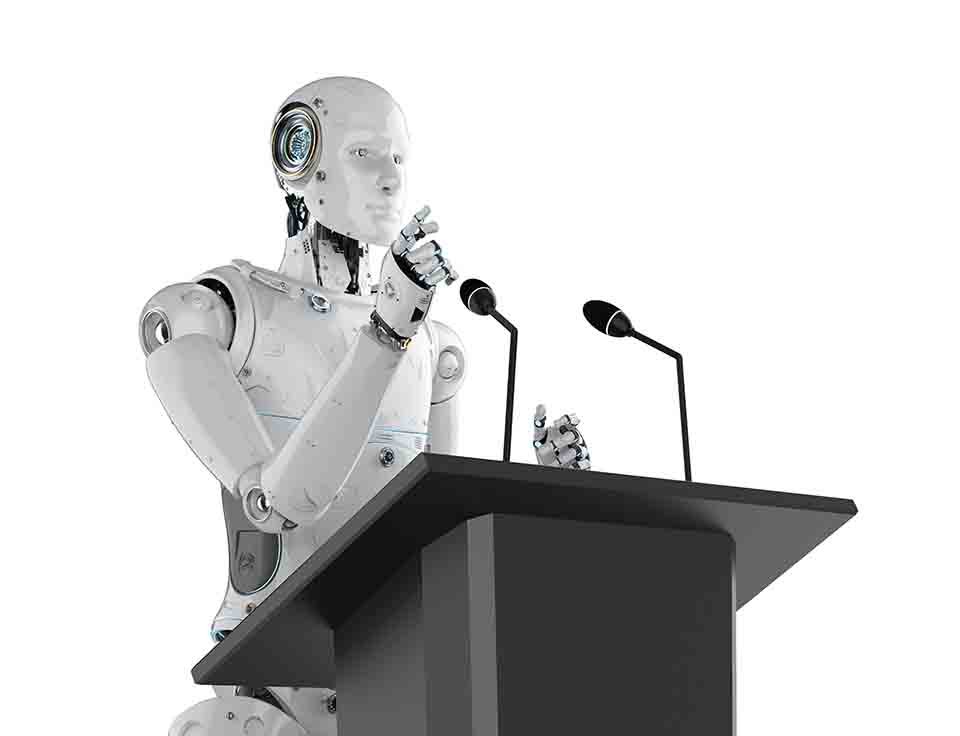In democratic systems, debates play a pivotal role in the political landscape, serving as a cornerstone for informed decision-making and political accountability. They are not just events where candidates present their views and policies; debates are vital arenas for public scrutiny and engagement. Through these organized forums, voters can assess candidates’ stances on key issues, their ability to articulate responses under pressure, and their overall demeanor and competence. Debates provide a structured, yet dynamic, platform for candidates to demonstrate their qualifications and vision for the future.
The significance of political debates cannot be understated. They present a unique opportunity for citizens to witness firsthand the strengths and weaknesses of those vying for public office. This exposure helps voters make informed choices, ensuring that their decisions at the polling booth are grounded in a thorough understanding of what each candidate stands for and how they propose to address pressing societal concerns. By comparing candidates side-by-side, debates afford an invaluable insight that goes beyond advertisements, slogans, and soundbites.
Furthermore, debates contribute to the accountability of politicians. By publicly declaring their positions and answering unscripted questions, candidates are compelled to commit to their views and promises before a wide audience. This public declaration creates a record that voters and media can refer back to, thus holding politicians accountable for their words and actions long after the debate is over. This mechanism is essential in fostering a transparent and responsible political climate where elected officials are continuously answerable to the populace.
This introduction sets the stage for a deeper exploration of how debates specifically aid voters in making informed decisions and maintaining accountability in the political process. The subsequent sections will delve into various aspects of these contributions, providing a comprehensive understanding of the indispensable role of debates in democratic governance.
Providing Information
Debates serve as a crucial platform where candidates can present their policies, values, and stances on various issues in a structured and direct manner. Unlike campaign ads or promotional materials, debates offer an unfiltered avenue for candidates to articulate their perspectives, respond to queries, and confront their opponents’ viewpoints head-on. This transparency is vital for the electorate, as it provides a more comprehensive understanding of each candidate’s position on key matters.
For voters, this information dissemination is instrumental in discerning the distinct differences among candidates. Debates facilitate a comparative analysis through real-time interaction, where candidates must defend their policies and address challenges posed by both moderators and opponents. This dynamic setting often reveals critical aspects of a candidate, including their depth of knowledge, problem-solving abilities, and capacity to handle pressure.
Historically, crucial information shared during debates has significantly impacted voter decisions. One notable example is the 1960 presidential debate between John F. Kennedy and Richard Nixon. The first-ever televised debate showcased Kennedy’s composed demeanor and persuasive communication skills, contrasting sharply with Nixon’s less confident appearance, ultimately swaying public opinion in Kennedy’s favor. Similarly, the 2012 debate between Barack Obama and Mitt Romney highlighted Romney’s economic plans and Obama’s healthcare policies, enabling voters to make an informed choice based on detailed exchanges.
Debates also serve to hold politicians accountable through direct questioning and fact-checking in real-time, providing voters with immediate clarifications and exposing any potential misinformation. This process not only iterates the importance of transparent communication but also enhances public trust in the democratic process. As candidates elucidate their platforms, voters are empowered with the knowledge to make decisions that best align with their own values and priorities.
Evaluating Candidates’ Competence
Debates serve as a vital platform for evaluating the competence and leadership abilities of political candidates. In this public arena, voters have the opportunity to scrutinize candidates comprehensively, observing their responses to questions and challenges. Assessing candidates’ knowledge on pressing issues is crucial, as it provides insight into their preparedness and understanding of the topics that matter most to the electorate. During debates, candidates are often required to articulate their policies, demonstrating not only familiarity with the issues at hand but also the depth of their expertise.
Communication skills are another essential competency voters evaluate during debates. Effective communication involves clarity, coherence, and the ability to engage the audience. A candidate’s capacity to convey their message persuasively and respond thoughtfully to questions reflects their aptitude in leadership roles. For instance, during the 1960 presidential debates, John F. Kennedy’s poised demeanor and articulate communication significantly bolstered public perception of his competency, contrasting with Richard Nixon’s less assured performance.
Additionally, temperament under pressure is a critical factor voters analyze in debates. Candidates are frequently confronted with challenging questions and opposing viewpoints, testing their composure and resilience. A candidate who demonstrates equanimity and thoughtful responses under scrutiny is often perceived as more capable of handling the demanding nature of political office. The 1988 debate between George H. W. Bush and Michael Dukakis highlighted this aspect; Dukakis’s calm yet detached response to a provocative question on capital punishment raised questions about his empathy and emotional engagement.
Historically, voters have utilized debate performances to form judgments about candidates’ overall suitability for office. These assessments are based not only on what candidates say but also on how they handle the dynamic and often unpredictable nature of live debates. By evaluating candidates’ knowledge, communication skills, and temperament, debates play an indispensable role in helping voters make informed decisions and hold politicians accountable.
Holding Politicians Accountable
Debates play a crucial role in the political landscape, serving as a powerful mechanism for holding politicians accountable. During these sessions, candidates are placed under public scrutiny as they articulate their policies, defend their past actions, and respond to critiques from opponents. This open forum compels politicians to directly address their constituents’ concerns, providing a candid view of their platforms and leadership abilities.
Public scrutiny is a cornerstone of the debate process. It forces candidates to be transparent about their stances and the feasibility of their proposals. When politicians are required to explain and justify their actions and promises, they face the challenge of maintaining credibility and consistency. This interaction is essential for voters, who can then assess not only the content of the policies but also the integrity and reliability of the candidates.
Debates also serve as a stage for exposing any inconsistencies or weaknesses in a candidate’s platform. Opponents’ questions and critiques during debates often highlight flaws that might not be evident through campaign speeches or media interviews. This transparency is significant for promoting accountability, as candidates must confront any discrepancies in their policies or past records. Consequently, debates facilitate a more informed voter base, equipped to make decisions based on comprehensive evaluations of each candidate.
In essence, debates enhance the democratic process by ensuring that politicians are answerable for their actions and pledges. They provide a structured environment where transparency reigns, and superficial rhetoric is put to the test by factual scrutiny. This not only helps voters make informed decisions but also upholds the standards of political integrity and responsibility, keeping politicians accountable to the public they aim to serve.
Encouraging Civic Engagement
Debates play a pivotal role in encouraging civic engagement among citizens. They serve as a platform for candidates to discuss critical issues, enabling voters to gain a deeper understanding of their policies, ideologies, and leadership qualities. By observing these discussions, citizens become more engaged in the political process, which is essential for the health of any democracy.
Engagement in debates empowers voters with information, allowing them to make more informed decisions at the ballot box. When voters witness candidates articulating their positions on pressing matters, they are better equipped to evaluate who aligns more closely with their values and priorities. This heightened awareness naturally motivates individuals to participate in the democratic process, whether by voting, attending town halls, or engaging in political discourse within their communities.
The ripple effect of increased civic engagement extends beyond individual voter turnout. When citizens are actively involved and educated about political issues, it fosters a more vibrant and responsive democratic system. High levels of civic participation can lead to greater accountability for elected officials, as they are more likely to be scrutinized and held responsible for their actions by an informed electorate. Furthermore, it encourages a culture of transparency and dialogue, essential ingredients for a healthy democracy.
Ultimately, debates are not just about the candidates on stage but about energizing the electorate. They provide a crucial opportunity for public discourse, helping voters feel more connected and invested in the democratic process. This connection is vital for maintaining the democratic fabric of society, ensuring that the political system remains robust and reflective of the will of the people.
Promoting Healthy Political Discourse
Debates serve as a vital platform for promoting healthy political discourse, fostering an environment where respectful dialogue and constructive criticism can flourish. This atmosphere encourages candidates to engage directly with one another, presenting their viewpoints while responding to opposing perspectives in a measured and civil manner. As candidates articulate their positions and intricacies of policies, both similarities and differences are examined in a way that promotes mutual understanding and respect. This is particularly crucial in an era where political polarization and misinformation can easily dominate public discourse.
Respectful dialogue during debates allows for the exploration of diverse ideas and solutions, offering voters a comprehensive view of their options. When candidates prioritize respectful communication over personal attacks or sensational rhetoric, it sets a tone that encourages voters to approach political conversations with a similar level of civility. The emphasis on constructive criticism rather than destructive criticism is essential. Rather than tearing down opponents with ad hominem attacks, candidates who engage in healthy debate focus on critiquing policies and arguments, offering alternative strategies and solutions. This elevates the quality of political discourse and enables voters to make informed decisions based on substance rather than spectacle.
Additionally, debates provide a venue for clarifying misunderstandings and correcting misinformation. When candidates engage with each other directly, they have the opportunity to fact-check in real time, thereby reducing the spread of false information. This not only helps voters but also holds politicians accountable to a higher standard of truthfulness and transparency. A political climate rooted in healthy discourse ensures that voters are not merely passive consumers of information but active participants in the democratic process. Through meaningful discussion, a culture of respect and mutual understanding is promoted, contributing to a more informed and respectful political environment.
Historical Examples of Influential Debates
The landscape of political debates has been undeniably shaped by several key moments in history. One of the most iconic debates was the 1960 U.S. Presidential debate between John F. Kennedy and Richard Nixon. This was the first-ever televised debate, marking a significant shift in how candidates reached their audiences. Kennedy’s composed, charismatic presence contrasted sharply with Nixon’s fatigued and less visually appealing demeanor, demonstrating the power of media in shaping public perception. As a result, Kennedy gained a crucial edge in a closely contested race, emphasizing the critical importance of non-verbal communication and media strategy in modern politics.
Another exemplary moment occurred in the 1984 U.S. Presidential debate when Ronald Reagan used humor to counter concerns about his age. Faced with growing speculation about his capability to serve a second term, Reagan quipped, “I will not make age an issue of this campaign. I am not going to exploit, for political purposes, my opponent’s youth and inexperience.” This deft use of wit quelled concerns and won over many undecided voters, illustrating how a well-timed, effective rhetorical strategy can mitigate negative aspects of a candidate’s profile.
In more recent history, the 2010 United Kingdom General Election debate stands out. It was the first time British leaders participated in televised debates, bringing a new dimension of scrutiny and accessibility to the election process. Nick Clegg’s performance, often referred to as “Cleggmania,” briefly propelled the Liberal Democrats to unprecedented popularity by highlighting his fresh and candid appeal. Though it didn’t lead to an electoral victory, it shifted public dialogue and forced other parties to take the Liberal Democrats’ platforms more seriously, demonstrating how debates can elevate political discourse and foster greater scrutiny of policy positions.
These debates not only influenced election outcomes but also enhanced political accountability. They provided platforms for candidates to defend their policies under public examination, making it harder to evade scrutiny. Moreover, they engaged voters by presenting clear distinctions between choices, thereby fostering a more informed electorate. The lasting impact of these debates underscores their pivotal role in defining political accountability and voter engagement through vigorous public examination of candidates’ visions and capabilities.
Conclusion
In conclusion, the significance of debates in the political landscape cannot be overstated. Throughout this blog post, we have underscored how debates serve as an indispensable tool for voters in making informed electoral decisions and in holding their elected representatives accountable. Specifically, debates play five critical roles in a democracy: providing comprehensive information on policies and candidates, evaluating the competence and demeanor of potential leaders, promoting accountability by publicly addressing pressing issues, encouraging civic engagement by involving the public in the political process, and fostering healthy discourse within political and civil spheres.
By facilitating direct interactions between candidates and the electorate, debates offer a unique platform for transparency. Voters gain insights into a candidate’s policy priorities, rhetorical skills, and problem-solving abilities, which are crucial for making educated choices at the polls. Additionally, the public scrutiny that emanates from these debates compels politicians to maintain honesty and integrity in their communications and promises, thereby promoting a higher degree of political accountability.
Moreover, debates act as a catalyst for civic engagement, prompting citizens to become more active participants in the democratic process. This heightened engagement is vital for nurturing a robust democratic society, where public interests are considered and debated openly. Healthy discourse, emanating from diverse viewpoints and rigorous debate, underscores the very essence of democracy – a system where free and informed dialogue shapes the course of governance.
We call upon our readers to recognize the power of their engagement in this process. Actively participate in watching debates, discussing political issues, and staying informed. By doing so, you contribute to the vitality of democracy, ensuring that it remains participatory, transparent, and accountable. Your engagement holds the key to a thriving democratic society.




